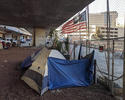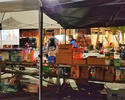Many Heartland cities continue to suffer the after effects of deindustrialization. One of them is South Bend, Indiana, the former mid-sized automobile manufacturing center home to the now defunct Studebaker. read more »
Middle Class
The Heartland's Revival
For roughly the past half century, the middle swath of America has been widely written off as reactionary, backward, and destined for unceasing decline. read more »
- Login to post comments
In Praise of Streetcar Suburbs, Defined and Illustrated
If there is a single American development pattern or style that I love most, it is the streetcar suburb. Bringing more of this pattern back to our cities would be a great thing. read more »
- Login to post comments
Joel Kotkin Q&A on 'The Coming of Neo-Feudalism'
Let’s start at the beginning, Joel. In talking about your new book, “The Coming of Neo-Feudalism: A Warning to the Global Middle Class,” do you literally fear that liberal capitalism is losing out to economic “feudalism”? And please put that word feudalism in a modern context for our readers. read more »
- Login to post comments
Welcome to Marquette Park
So last month I saw an article in the New York Times about the resurfacing of a video documenting a racist attack on black children in Rosedale, Queens in New York City in 1975. A group of black kids from a nearby neighborhood decided to go on a "bike hike" through surrounding neighborhoods. Little did they know they would stumble on a protest against black movement into the area. read more »
- Login to post comments
Is the California Dream Finished?
For all the persistent rhetoric from California’s leaders about this state being on the cutting edge of social and racial justice, the reality on the ground is far grimmer. read more »
- Login to post comments
Storied Cities
Athens is the birthplace of Western culture, with the physical ruins of its classical age still visibly present as a perpetual reminder. Virgil composed his epic poem, The Aeneid, recounting the mythic flight of Aeneas from defeated Troy to Italy, becoming the forbear of Rome. New York sees itself as unique center of commerce, founded when the Dutch (not the English) bought Manhattan for beads in the city’s first hustle. Nashville needs no reminder that it’s the center of country music, nor Detroit that it is the Motor City. read more »
- Login to post comments
Urban Blues
On the surface, progressive “Blue America” has never appeared stronger. President Donald Trump’s leadership failures exposed by the pandemic and the recent disorders, is sinking him in the polls. His rival, Joe Biden, seems likely to concede his traditionally moderate stances to placate the Democrats’ youthful activist and identitarian wings. read more »
- Login to post comments
How the Virus Is Pushing America Toward a Better Future
Pessimism is the mood of the day, with 80 percent of Americans saying the country is generally out of control. Even before civil unrest and pestilence, most Americans believed our country was in decline, Pew reported, with a shrinking middle class, increased indebtedness and growing polarization. read more »
State of the Nation on July 4 and How It Has Changed Over Time
Coronavirus, a shattered economy, racial tensions, deep partisan polarization. Is it any surprise that Americans are down in the dumps? How could it be otherwise? Putting today’s sentiments in historical perspective using polls conducted over many years helps to assess our current malaise. read more »
- Login to post comments






















